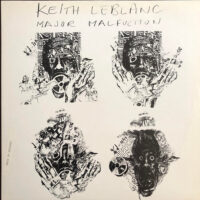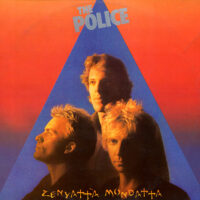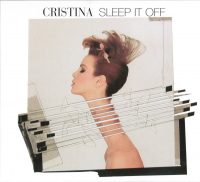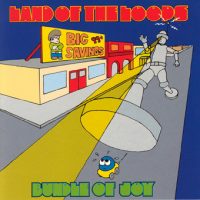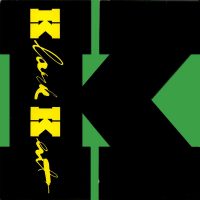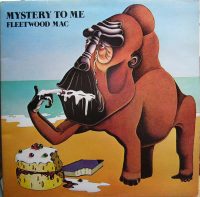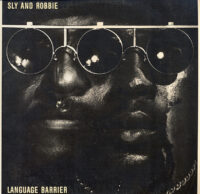
Formerly ubiquitous drummer Sly Dunbar and bassist Robbie Shakespeare are better known for their session work than for their own releases, and it’s easy to understand why. Jamaica’s best-known rhythm section has forged deep grooves for a panoply of stars both in their native reggae and dub styles as well as in funk, R&B, rock, pop, trip-hop, and jazz modes. A partial litany of collaborators includes Grace Jones, Bob Dylan, Madonna, the Rolling Stones, Sinéad O’Connor, Gilberto Gil, and Tricky, as well as with fellow countrymen Black Uhuru, Sugar Minott, and Peter Tosh, among many others. The Sly & Robbie imprimatur bestowed quality on records and in concerts for decades in multifarious contexts, until the latter’s 2021 death.
Among the duo’s own albums, 1985’s Language Barrier stands as one of the most interesting. Produced by Material bassist Bill Laswell, Language Barrier boasts a large, varied cast of musicians: Wally Badarou, Bernie Worrell, Herbie Hancock, Dylan, Manu Dibango, and Afrika Bambaataa, among others. Distinguished company! Laswell had the best Rolodex in the biz in the ’80s and ’90s.
Anyone expecting trad reggae or dub on Language Barrier will be disappointed. That’s not how Sly & Robbie—and Laswell—rolled in those days. Opener “Make ‘Em Move” telegraphs the dominant approach with prowling electro-funk in the realm of Herbie Hancock’s “Rockit” and Art Of Noise’s “Close (To The Edit),” but with militant alpha-male vocals by either Bernard Fowler or Bambaataa. Featuring Dylan on harmonica, “No Name On The Bullet” is bulky electro-funk that veers into Mark Stewart & The Maffia territory. It’s very much a product of ’80s studio aesthetics, with its clunky drum effects and blaring digital synth smears.
“Bass And Trouble” would segue well into Bambaataa & Soulsonic Force’s “Looking For The Perfect Beat” or, indeed, Hancock’s “Rockit” (that again). Explosive and dynamic as hell, with highlight-reel sax by Dibango and a searing guitar solo by one of the five axemen on the record, “Bass And Trouble” is a definite standout. The album’s most uptempo number, “Get To This, Get To That,” percolates like a quasi-techno jam, with soulful singing by Fowler.
The main attraction, though, is the radical interpretation of Miles Davis’ five-dimensional brain-fryer, “Black Satin,” from his greatest album, On The Corner. Sly & Robbie delete the electric sitar- and tabla-laced intro and the main motif seems to be created here with a strange synth setting that almost sounds like a kazoo—a bold choice. But, unsurprisingly, Dunbar can’t match Jack DeJohnette’s nimble athleticism and mind-boggling complexity on the drums, so instead Sly keeps a neck-snapping 4/4 while Shakespeare repeats Michael Henderson’s probing bass line like an automaton—not a complaint! Laswell crams the stereo field with odd activity, but it’s a more ’80s-style array of disorienting tics and gestures. Whatever the case, it took guts to cover such an innovative track by a genius, and I’m here for it.
Language Barrier definitely has a dated quality, but with Sly & Robbie near their peak and backed by such a high-powered crew, it belongs in your collection. -Buckley Mayfield
Located in Seattle’s Fremont neighborhood, Jive Time is always looking to buy your unwanted records (provided they are in good condition) or offer credit for trade. We also buy record collections.







